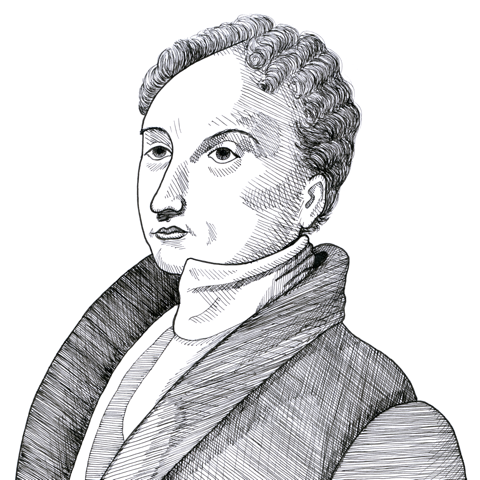
James Mill on the “sinister interests” of those who wield political power (1825)
Found in: Government
The Utilitarian and Philosophic Radical James Mill (1773-1836) wrote a series of articles for the Supplement to the 1825 edition of the Encyclopedia Britannica. In the article on “Government” he warns of the dangers of the selfish and “sinister interests” all those who wield power, unless checked by an informed people:
Class
We have seen already, that if one man has power over others placed in his hands, he will make use of it for an evil purpose; for the purpose of rendering those other men the abject instruments of his will. If we, then, suppose, that one man has the power of choosing the Representatives of the people, it follows, that he will choose men, who will use their power as Representatives for the promotion of this his sinister interest.
We have likewise seen, that when a few men have power given them over others, they will make use of it exactly for the same ends, and to the same extent, as the one man. It equally follows, that, if a small number of men have the choice of the Representatives, such Representatives will be chosen as will promote the interests of that small number, by reducing, if possible, the rest of the community to be the abject and helpless slaves of their will.